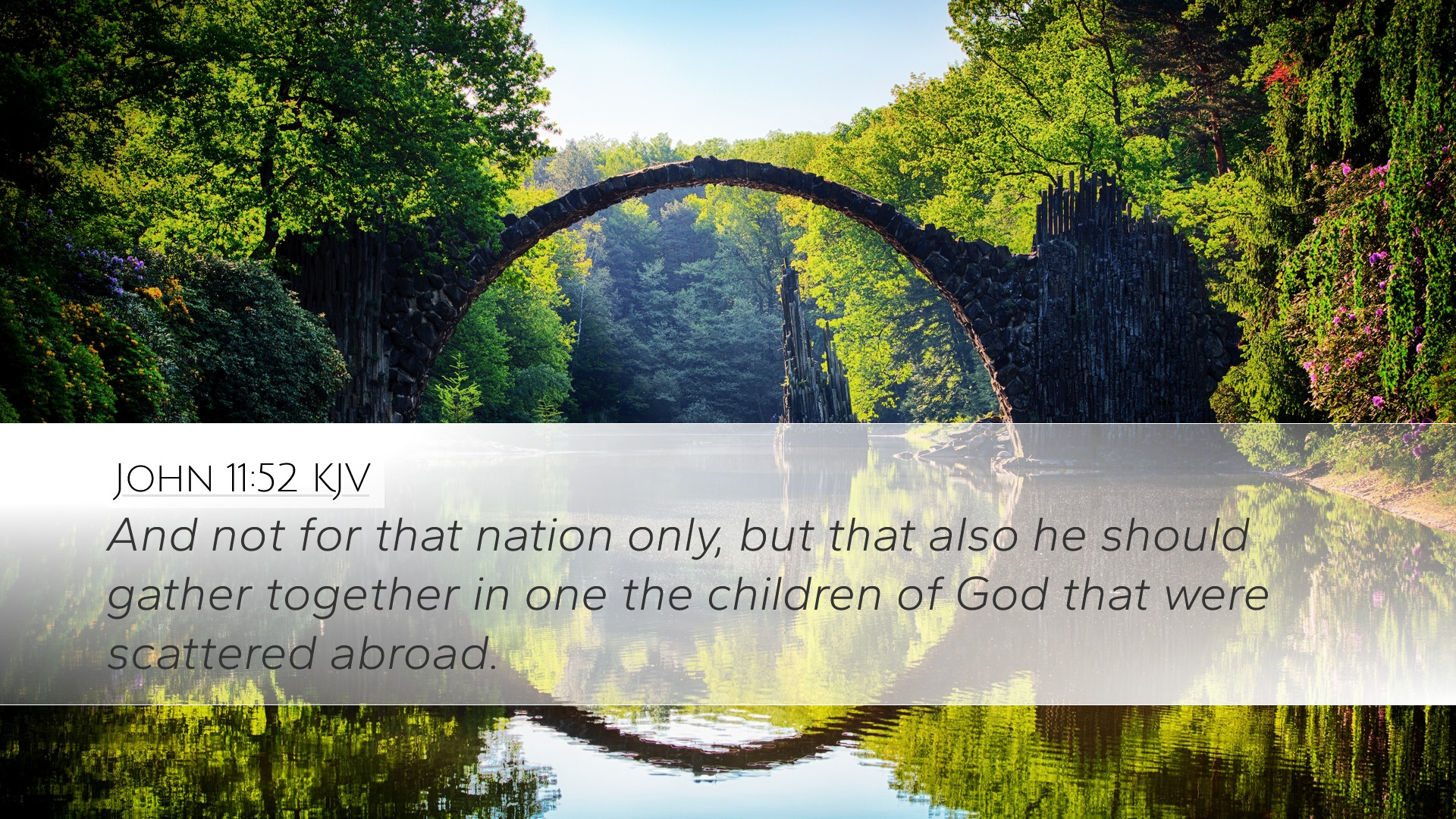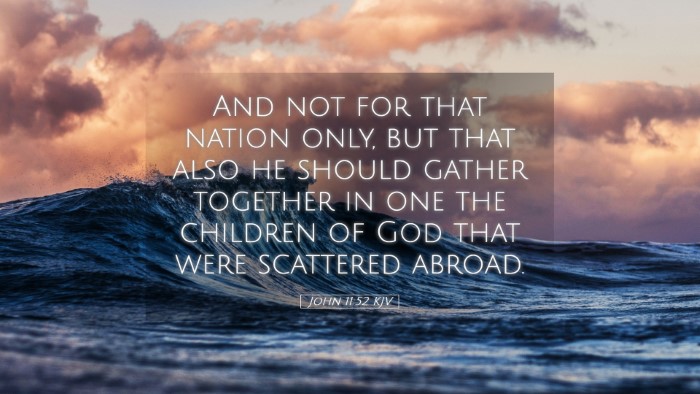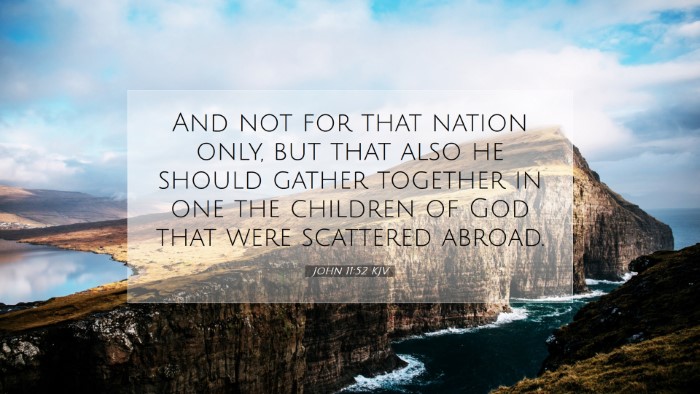Commentary on John 11:52
John 11:52 states, "And not for that nation only, but that also he should gather together in one the children of God that were scattered abroad." This verse is situated within the context of the events surrounding the plot to kill Jesus, highlighting the profound theological implications of His sacrificial death.
Contextual Overview
This passage follows the miraculous raising of Lazarus, which prompted the Jewish leaders to conspire against Jesus. The Sanhedrin, represented by Caiaphas, speaks prophetically without realizing the true meaning of his words. A critical aspect of understanding this verse is recognizing its place within the larger narrative of salvation history.
Theological Significance
At the heart of John 11:52 lies the concept of Jesus as the unifier of God's scattered people. This brings about reflections on several key themes:
- The Universal Scope of Salvation:
The phrase "not for that nation only" indicates that Jesus' death extends beyond the Jewish community to encompass all humanity. Albert Barnes notes that the death of Christ was not limited to the Jews, reflecting God's desire for a gathered people from all nations.
- Gathering the Children of God:
This aspect points to the intent of Jesus’ mission, which was to bring together "the children of God that were scattered abroad." Adam Clarke highlights the eschatological promise where God intends to restore His people and unite them under one shepherd, emphasizing the hope inherent in Christ's redemptive work.
Insights from Matthew Henry
Matthew Henry brings forth several insights that enrich the understanding of this passage. He comments on the prophetic statement made by Caiaphas, suggesting that even those who oppose Christ can unwittingly participate in fulfilling God's purpose. Henry observes that Caiaphas desired to save his nation, yet his words encapsulated a divine plan that transcended the immediate circumstances. The gathering of the scattered children of God signifies a movement from isolation towards communal belonging in Christ.
Reflection from Adam Clarke
Adam Clarke provides a pastoral perspective, urging readers to consider the implications of this gathering. He emphasizes that the "children of God" are those who believe in Christ and are thus part of His family. The scattering referenced not only signifies the physical separation of believers, such as the Jews in exile, but also the spiritual fragmentation due to sin. Clarke encourages the church to reflect on its role in the gathering process, advocating for unity and inclusivity among believers.
Albert Barnes' Commentary
Albert Barnes stresses the importance of recognizing that the gathering spoken of is both present and future. The unification process began during Christ's ministry and continues to this day, culminating in the ultimate gathering at the end of the age. Barnes accentuates the importance of the Church's duty to reach out to "the scattered," reinforcing that the message of Christ is meant for all, breaking down the barriers that often divide humanity.
Conclusion
In conclusion, John 11:52 serves not only as a historical reflection on the events surrounding Caiaphas’s declaration but as a profound theological statement about the cosmic purpose of Christ's death. The verse reveals God's redemptive plan that aims to gather a unified people through Christ. This truth invites pastors, scholars, and believers alike to embrace the transformational message of the Gospel, fostering a spirit of unity and outreach in a world often marked by division.


